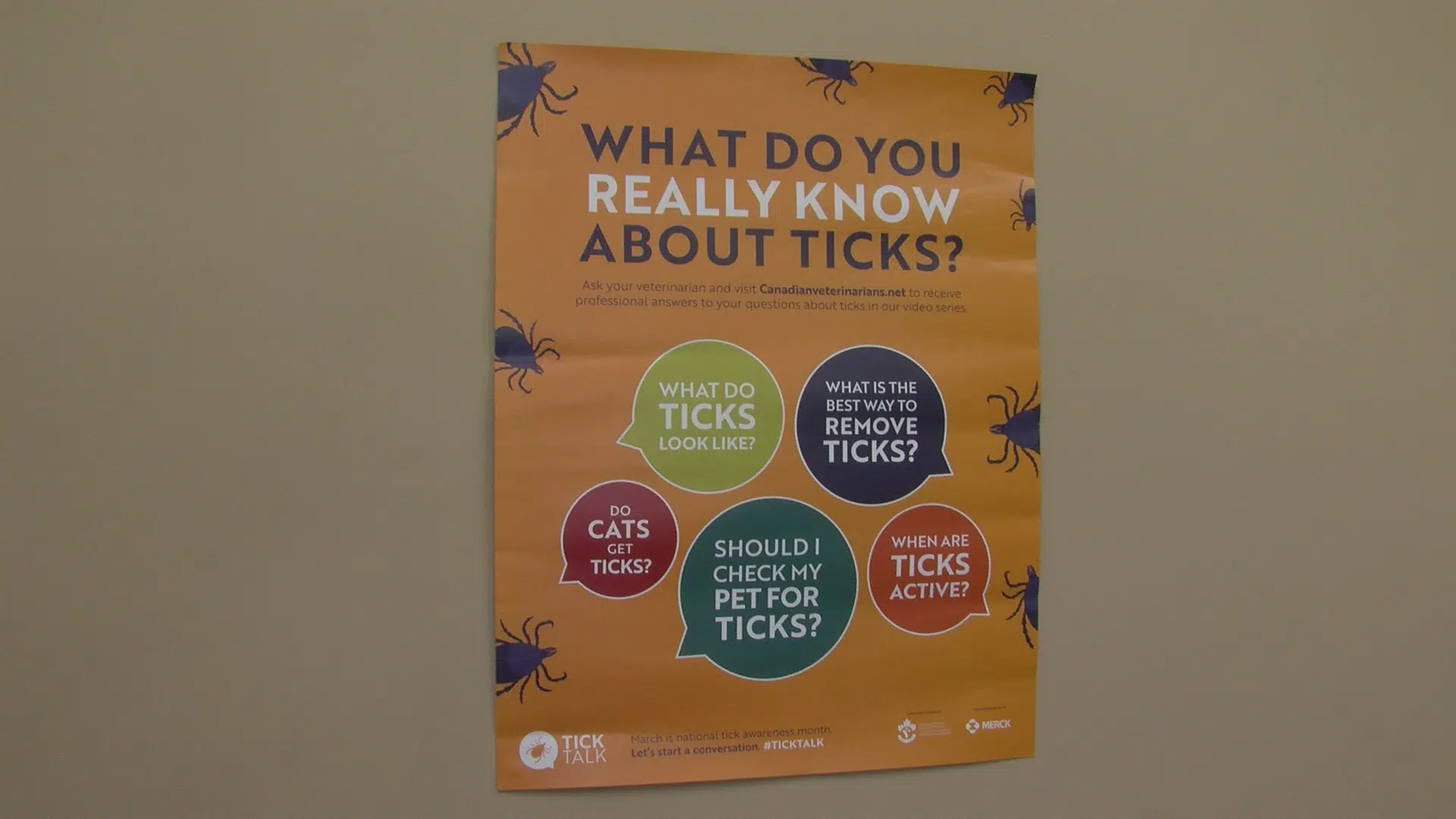
Be on the lookout for ticks
MEDICINE HAT, AB – As you’re outside with your animals on the warmer days ahead, one pest to start watching out for are ticks.
They’re looking for a food source and start becoming more active when the temperature rises about four degrees.
Tammy Duggan from the Cypress View Veterinary Clinic says in Medicine Hat, ticks are commonly found in wooded and grassy areas like the Saratoga Dog Park.
